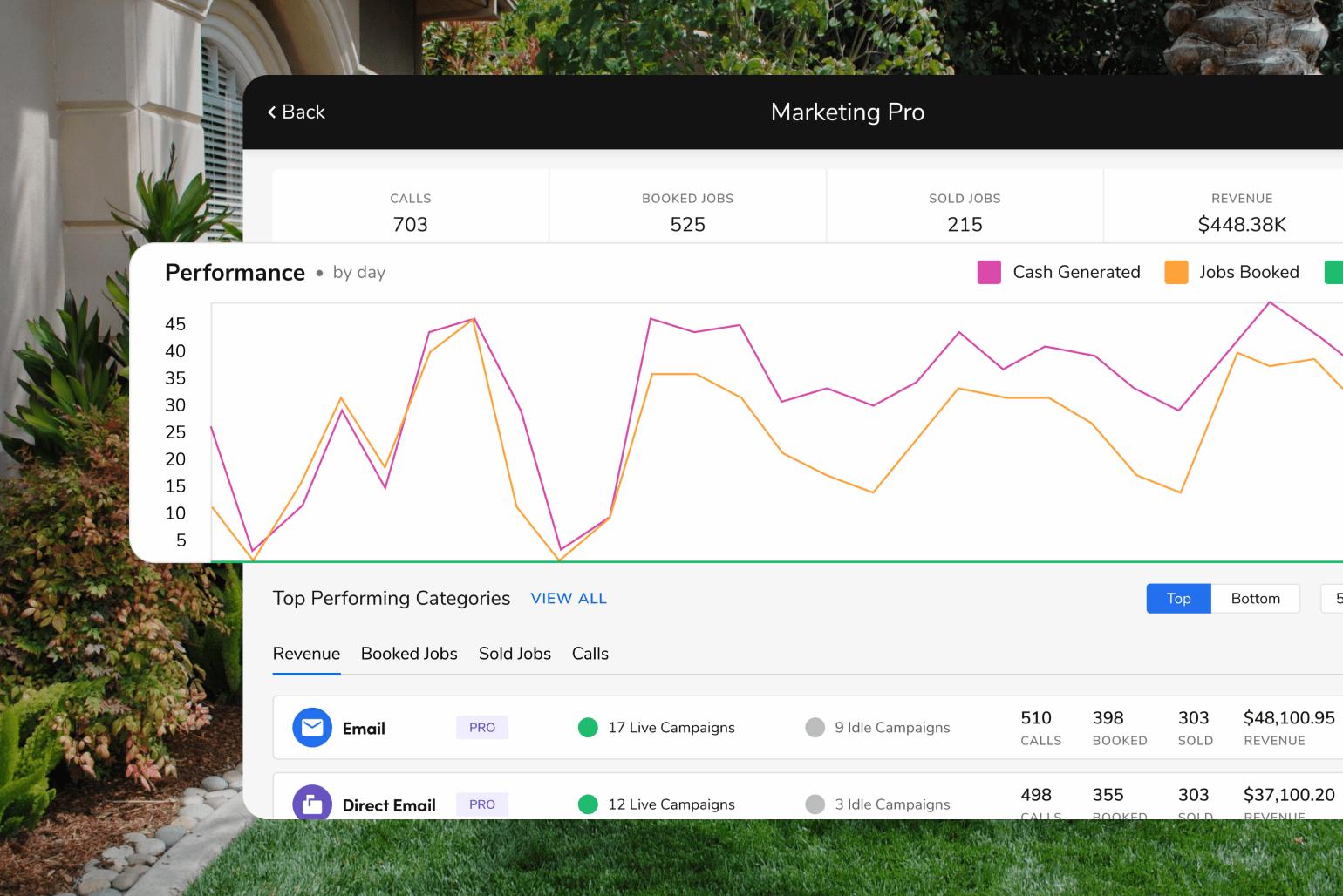How to Hire Pest Control Employees

Hiring pest control employees is essential for growing your company and delivering top-notch pest control services.
Bringing on skilled pest control technicians helps you tackle various pest problems—from bed bugs to termites—and guarantees customer satisfaction.
This guide will walk you through each step of the hiring process, helping you find and keep the right employees for your pest control business.
When You Should Hire New Pest Control Employees?
You will need to hire new pest control employees when your business grows or when there is an increased demand for pest control services.
When to bring on more pest control techs depends on several factors.
Increased demand for your services: If your pest control business is getting more customer requests or your current team is overwhelmed, it's time to hire more technicians.
Overworked staff: If your current techs are working overtime frequently or showing signs of burnout, it’s a clear sign your business has reached its employee capacity. Bringing in new employees will help balance the workload and maintain a quality service.
Expansion of your services: If your business expands into new services such as lawn care or commercial pest management, you may need to hire employees with the skills to provide those new services.
Tracking these factors lets you know when to grow your team and keep up with the pest control industry.
What You Should Look for In Pest Control Employees
Pest control employees identify, manage, and eliminate pest infestations on residential, commercial, and industrial properties. Their job duties include assessing pest problems, applying pesticides safely, following protocols, and educating clients on prevention.
However, in addition to technical skills, pest management professionals need exemplary people skills to deal with customers.
When hiring new employees, consider these qualifications and skills:
Experience: Look for candidates with hands-on experience in pest management, especially those familiar with the types of pests in your area or business.
Certifications and licenses: Many pest control jobs require specific pesticide application licenses. Ensure your candidates have the necessary certifications to do their job legally and safely.
Customer service skills: Techs deal with clients, so good communication skills and a positive attitude are essential to excellent service.
Physical stamina: Pest control work can be physically demanding, requiring heavy lifting, tight spaces, and exposure to harsh environments.
Problem-solving skills: Assessing infestations and developing treatment plans to manage pest control.
Use of technology and software: Technology like the FieldRoutes Mobile App gives pest control employees more power in the field. They can log treatments, update job status, and communicate with office teams in real-time, making them more efficient and accountable. With features for connected teams and service tracking, the FieldRoutes app helps techs stay organized and deliver outstanding service.
As you assess these qualities and skills in candidates, you’ll be better positioned to hire technically skilled pest control technicians who can build positive customer relationships.
What is The Hiring Process for a Pest Control Employee?
A designated hiring process will help you attract the most qualified candidates, evaluate them for the role, and have a smooth onboarding.
Here are the steps involved in the hiring process:
Step 1: Understand your recruiting needs
Step 2: Search for candidates
Step 3: Review the applications
Step 4: Conduct job interviews
Step 5: Run a pest control technician assessment
Step 6: Check for references
Step 7: Select the right technician and make a job offer
Now, let’s explore each step in more detail.
1. Understand Your Recruiting Needs
The first step in the process is knowing what you’re recruiting for.
Are you looking for entry-level pest control techs or experienced exterminators?
Do you need techs with specific certifications or licenses for certain types of pesticides?
Also, how many new employees do you need to meet growing demand or expand your services?
Knowing what you are looking for can help you write a clear and targeted job description that will attract suitable candidates. Knowing your recruiting needs upfront will also help you focus your hiring efforts.
2. Search for Candidates
Now that you know your recruiting needs, it’s time to find qualified candidates. Use internal and external sources to cast a wider net.
Job boards: Indeed, ZipRecruiter and industry-specific job posting boards are great places to list pest control technician jobs.
Social media: LinkedIn and Facebook are great tools for connecting with potential candidates and posting job openings.
Recruiting firms: Consider working with specialized agencies to source top talent in the pest control industry.
Employee referrals: Have your current employees refer qualified candidates from their network. A recommendation from a fellow professional is usually a sound candidate.
Altogether, these will give you a large pool of candidates with the experience and skills you seek in your employees.
3. Review the Applications
Once you have applications, it’s time to review them to find the most qualified candidates. Look for resumes with relevant experience, such as previous work in pest management or specific pesticide-related experience.
While reviewing resumes, pay attention to:
Work experience: Candidates with a history in the pest control industry or similar fields like lawn care.
Certifications and licenses: Make sure candidates have the necessary qualifications to perform pest control services safely and legally.
Resume layout: A clean and organized resume can indicate attention to detail, an important skill in the pest control business.
By weeding out the less qualified applicants, you can focus on the top candidates for the next step.
4. Conduct Job Interviews
The interview process allows you to dig deeper into a candidate’s skills, experience, and fit for your company culture. Whether in-person or virtual interviews should cover the following:
Technical skills: Ask about their previous experience with pest control services, pesticides, and technology.
Problem-solving abilities: Ask how they approach a tricky pest problem like termite control or bed bug treatment.
Cultural fit: Does the candidate fit your company values and team dynamic?
Multiple interviews may be required for the more technical roles.
5. Run a Pest Control Technician Assessment
To test the practical skills of your candidates, consider a pest control technician assessment. These can include:
Practical tasks: Ask candidates to demonstrate knowledge of common pest control methods, such as inspecting homes for pest infestations.
Problem-solving tests: Present scenarios and ask them to choose the best pest management solution.
Safety protocols: Make sure job seekers know how to handle pesticides and equipment and follow industry regulations.
These assessments help confirm that candidates possess the skills they claim to have.
6. Check for References
Before making a final decision, be sure to check references to get insight into the candidate’s work history and performance. Contact former employers or colleagues to verify:
Work ethic: Was the candidate reliable and on time?
Job performance: How did they do pest control work and interact with clients?
Teamwork: Did they work well with other pest control techs?
Reference checks will give you added peace of mind the candidate is a good fit for your pest control company.
7. Select the Right Technician (Job Offer)
Once you have completed interviews and assessments, choose the best candidate and extend an offer. The offer letter includes the start date, salary, job responsibilities, and performance expectations. Make sure to give a deadline for accepting the offer to keep the momentum going in the hiring process.
Once the candidate accepts the offer, plan an onboarding process to get them up and running in your pest control business. This includes introducing them to company culture, safety protocols, and training.
With a process in place, you can find and retain top pest control techs who will contribute to your company’s growth.
What Pest Control Technician Interview Questions Should I Ask?
When interviewing pest control technicians, asking the right questions helps you assess their technical skills and career goals and streamline the hiring process. Here are five questions you should ask:
What types of pests have you most commonly dealt with? This question will evaluate their experience with different pests, such as termites or bed bugs, and ensure they have experience with your pest control company.
Can you describe the process you would follow to identify and assess a pest infestation in a residential property? This question will show their problem-solving approach, how they handle different pest infestations, and whether they have a process in place.
How do you select and apply appropriate pesticides while ensuring the safety of occupants and the environment? Assess their knowledge of pesticide application and commitment to customer and environmental safety.
What motivated you to pursue a career in pest control? This question will help you understand their passion for the pest control industry and whether they see this as a long-term career.
Where do you see yourself in five years in the pest control industry? This question will show their career goals and if they will grow with your company.
Asking these questions will help you gain insight into potential high-quality candidates and their career aspirations. You can find more questions to ask here.
How Can I Retain Pest Control Employees?
Retaining skilled pest control employees is vital to the long-term success of your pest control company. High turnover can lead to operational inefficiencies and increased costs. Here are five ways to keep your best employees engaged and committed to your business:
Offer Competitive Compensation and Benefits One of the best ways to retain employees is by offering competitive pay and benefits. Pest control techs want to feel they are fairly compensated for their work. In addition to pay, health insurance, retirement plans, performance bonuses, and paid time off are offered. Flexible work hours and remote work options for administrative staff can also boost employee satisfaction and retention.
Create a Positive Company Culture A positive company culture where employees feel valued and respected is essential for retention. Foster an environment that promotes teamwork, communication, and recognition. Regularly acknowledge your pest control techs for their work through formal rewards programs or simple verbal recognition. Employees who feel like they are part of the company will stay. Encourage a culture of safety, especially when dealing with pesticides and hazardous tasks, to show you care about their well-being.
Provide Opportunities for Growth Employees will stay with your company if they see a future there. Offer clear career paths and development opportunities, such as certification programs for different types of pesticides or advanced pest management techniques. You can also offer leadership training for employees who show potential for management roles. Employees who feel they can advance their careers don’t look elsewhere.
Improve Work-Life Balance Work-life balance is vital in today’s job market. Pest control employees work in demanding environments, so providing a flexible schedule or time off can greatly improve their job satisfaction. Ensure your employees are not overworked and allow them time off for personal matters or family when needed. Supporting work-life balance reduces burnout and improves employee retention.
Conduct Regular Feedback and Stay Interviews Regular check-ins with employees will keep you tuned into their concerns and needs. Conducting “stay interviews”—informal conversations focused on what keeps employees happy and what might make them leave—can give you valuable insights to improve retention. Listening to your employees' feedback and acting on their suggestions shows you care about their well-being and future with the company.
By doing this, pest control companies can retain their best employees, reduce turnover, and build a stronger, more engaged workforce.
Conclusion
Hiring pest control employees is essential for growing your company and delivering top-notch pest control services.
The hiring process will involve crafting a compelling job description, posting open positions on job boards, leveraging referrals and social media platforms to find qualified candidates, screening resumes, conducting phone and in-person interviews, and performing thorough background checks.
After recruiting pest control employees and technicians, focusing on retaining them is just as important.
Offering competitive incentives and perks, fostering a positive company culture, and providing ongoing training and development opportunities are ways to retain your new pest control employees.
While building out your team, it’s important to ensure that your company’s operations are streamlined and straightforward for your employees to use.
FieldRoutes provides the most efficient pest control software to simplify, scale, and grow pest control companies of all sizes.
Get your free demo today.





